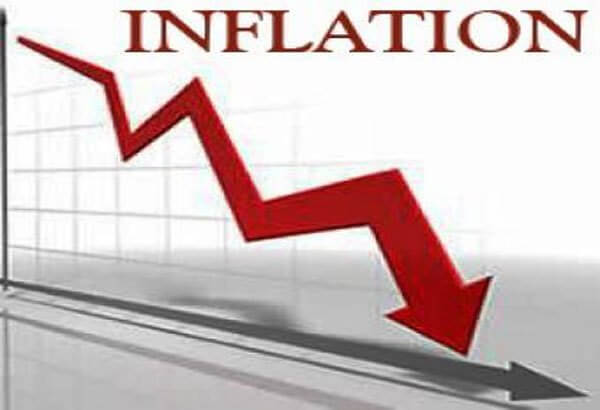… Dips Below 20% First Time In Three Years
Nigeria’s headline inflation rate eased to 18.02 per cent in September 2025, marking a significant moderation from 20.12 per cent recorded in August, according to the latest data from the National Bureau of Statistics (NBS).
The drop represents a 2.1 per cent month-on-month decline and is the first time since 2022 that the country’s inflation rate has fallen below the 20 per cent threshold.
The report showed that on a year-on-year basis, the September 2025 headline inflation rate was 14.68 percentage points lower than the 32.70 per cent recorded in the same month of 2024.
The decline, partly attributed to a change in the base year (November 2009 = 100), indicates that price pressures have eased considerably compared to the same period last year.
On a month-on-month basis, inflation also decelerated slightly to 0.72 per cent in September from 0.74 per cent in August, implying a slower rate of increase in the general price level.
Advertisement
The Consumer Price Index (CPI) rose to 127.7 points from 126.8 points in August, reflecting a modest 0.9-point increase.
The NBS further disclosed that the average annual inflation rate for the twelve months ending September 2025 stood at 23.46 per cent, representing an 8.27 percentage-point decrease compared with 31.73 per cent in the corresponding period of 2024.
Food inflation, which has been the main driver of headline inflation, slowed dramatically to 16.87 per cent in September 2025 from 37.77 per cent in the same period of 2024, a 20.9 percentage-point drop.
The agency attributed this decline to the change in the base year and a reduction in the average prices of key food items such as maize, garri, beans, millet, potatoes, onions, eggs, tomatoes, and fresh pepper.
On a month-on-month basis, food inflation turned negative at -1.57 per cent in September, compared to 1.65 per cent in August, underscoring easing food costs in some regions.
Advertisement
The average annual rate of food inflation for the twelve months ending September 2025 was 24.06 per cent, 13.47 percentage points lower than 37.53 per cent recorded in September 2024.
Across states, Ekiti (28.68 per cent), Rivers (24.18 per cent), and Nasarawa (22.74 per cent) recorded the highest year-on-year increases in food inflation, while Bauchi (2.81 per cent), Niger (8.38 per cent), and Anambra (8.41per cent) posted the slowest rises.
On a month-on-month basis, Zamfara (15.62 per cent), Ekiti (12.77 per cent), and Sokoto (12.55 per cent) led the increases, while Akwa Ibom (-12.97 per cent), Borno (-12.95 per cent), and Cross River (-10.36 per cent) saw notable declines.
Core inflation, which excludes volatile agricultural and energy prices, also eased to 19.53 per cent year-on-year in September 2025 from 27.43 per cent in September 2024, a 7.9 percentage-point drop.
On a month-on-month basis, core inflation stood at 1.42 per cent, slightly lower than 1.43 per cent in August.
The twelve-month average core inflation rate was 22.39 per cent, down from 25.64 per cent in September 2024.
Advertisement
The NBS report also showed that Adamawa (23.69 per cent), Katsina (23.53 per cent), and Nasarawa (22.29 per cent) recorded the highest all-items inflation on a year-on-year basis, while Anambra (9.28 per cent), Niger (11.79 per cent), and Bauchi (12.36 per cent) posted the lowest.
Month-on-month, inflation was highest in Zamfara (9.36 per cent ), Adamawa (8.15 per cent), and Nasarawa (7.49 per cent), while Niger (-8.14 per cent), Oyo (-5.56 per cent), and Bayelsa (-4.61 per cent) saw declines.
Meanwhile, the Chief Executive Officer of Financial Derivatives Company (FDC) Limited, Bismarck Rewane, had projected that inflation could fall further to 18 per cent by November 2025.
Speaking at the October edition of the Lagos Business School (LBS) Breakfast Session, Rewane attributed the anticipated moderation to increased imports ahead of December’s festive demand and stronger supply-side responses in key sectors.
Rewane described Nigeria’s economic recovery as “authentic,” highlighting a real GDP growth rate of 4.23 per cent in Q2 2025, the highest in four years since Q2 2021 when GDP grew by 5.01 per cent.
He, however, cautioned that a ceasefire in Gaza could lower global oil prices, potentially widening Nigeria’s fiscal deficit.
“At $60 per barrel, Nigeria’s fiscal deficit could climb towards 4.5–5 per cent of GDP,” he warned.
Nigeria’s 2025 budget is benchmarked at $75 per barrel with a crude oil production target of 2.06 million barrels per day (mbpd).
However, as of October 13, crude oil traded at $63.60 per barrel, while output stood at 1.58 mbpd, below projections.
Data from the Debt Management Office (DMO) show that the country’s total public debt rose to ₦152.40trn ($99.66bn) as of June 30, 2025, an increase of ₦3.01trn from the ₦149.39tn ($97.24bn) recorded in March.
Nigeria spent $932.1m and ₦1.7tn on external and domestic debt servicing, respectively, in the second quarter of 2025.
Rewane noted that out of 46 tracked economic activities, 32 expanded, 10 slowed, and 4 contracted, with industry growing by 7.45 per cent, services by 3.94 per cent, and agriculture by 2.82 per cent, signalling a broad-based recovery despite prevailing fiscal pressures.

